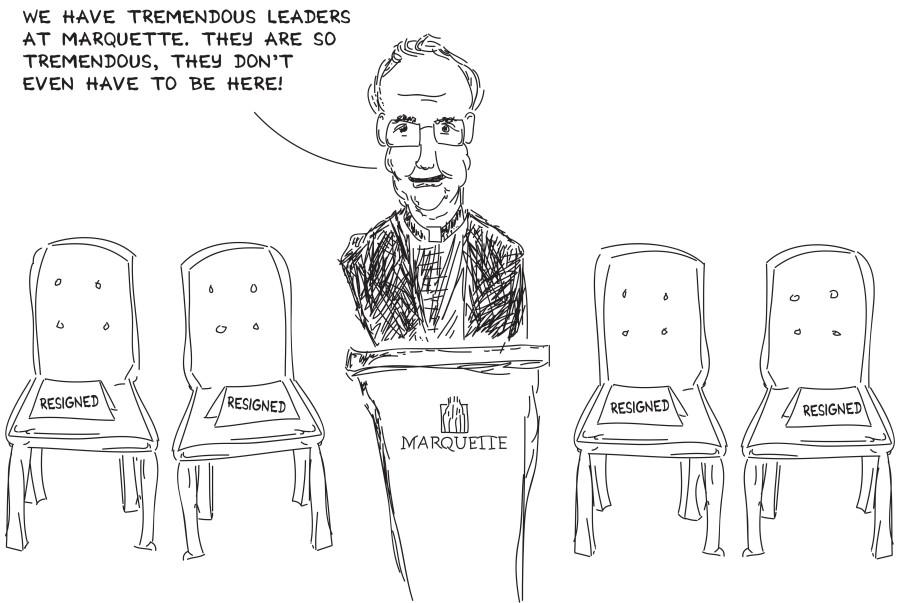At 3:30 p.m. the Friday of finals week, an email was sent out regarding yet another abrupt change in Marquette’s administration.
The email announced the resignation of Larry Williams, vice president and director of athletics, making him the fourth member of the University’s Leadership Council to resign since May 2013. In line with the previous resignations, Williams left to pursue “other leadership opportunities” outside of the university. Former athletic director, Bill Cords, will serve as interim athletic director until a permanent replacement is chosen.
Williams, appointed in late 2011 by former University President the Rev. Scott Pilarz, led Marquette’s athletic program to the new Big East conference’s inaugural season. Similar to the sudden departure of Executive Vice President Mary DiStanislao in October, Williams’ resignation came just before a university break.
Speculation is circulating about what is really happening among top tier administrators, leaving staff, students and alumni who are concerned about the university’s future assuming something is not right. The loss of more leaders reflects poorly on the institution and leaves the university’s state of affairs up for (mis)interpretation by the public.
The possibility of the athletic department suffering in the long run and failing to meet fundraising goals becomes a concern with the resignation of the director, which may prove detrimental to an otherwise stable branch of the university. Rather than addressing the factors behind the resignations, statements from the university are brushing them off as coincidental and of little importance to the institution’s operations.
This abdication had its own special news brief, whereas the resignation announcement of DiStanislao was given second billing in an average semi weekly news brief. By repeatedly releasing such major resignations after the majority of students have already left campus, the university seems to be minimizing the community’s response.
The resignations of Marquette leaders in the past year have been dealt with in a misdirected manner, which further propagates arguments for the institution’s instability and aimlessness. There is no current statement from the university regarding the resignations and, as they pile up, speculations continue to predict the worst.
The university’s bid for reaffirmation of accreditation and incoming freshmen enrollment rates will likely remain unaffected by the resignations and their misguided handling, but Marquette’s public image remains at risk.
There appears to be little effort to maintain stability among administrators, and the effects of this instability have spread throughout the workings of the university, academia and, now, college athletics. With nearly all leadership positions filled by interims, new hires are put on hold and donations could suffer as a result. The university needs to establish what is really going on in the administration rather than trying to brush the resignations off as inconsequential.
Although it is normal for administrators hired under a president to leave shortly after his or her departure, the scattered and abrupt resignations are creating a significant leadership imbalance.
If resignations are to continue into the spring semester, university leaders needs to be clear on the circumstances — if it is just coincidental they are occurring so often or if there is some outside factor the public is not aware of.
The Marquette community wants to know what is going on, and if administrative leaders remain tight-lipped about such events, the university will continue to suffer.


